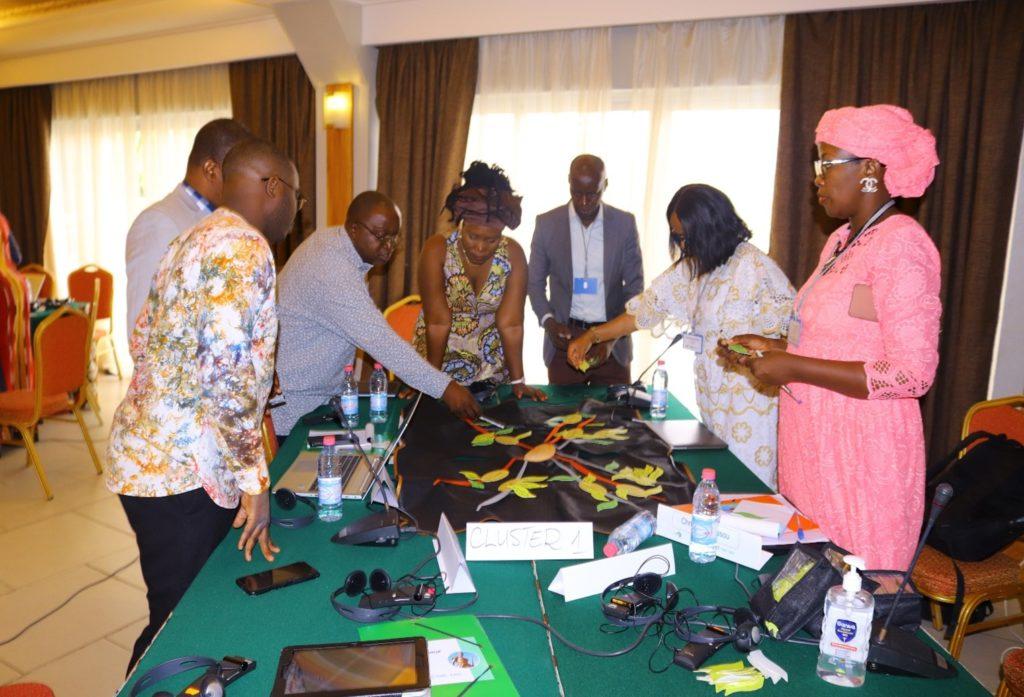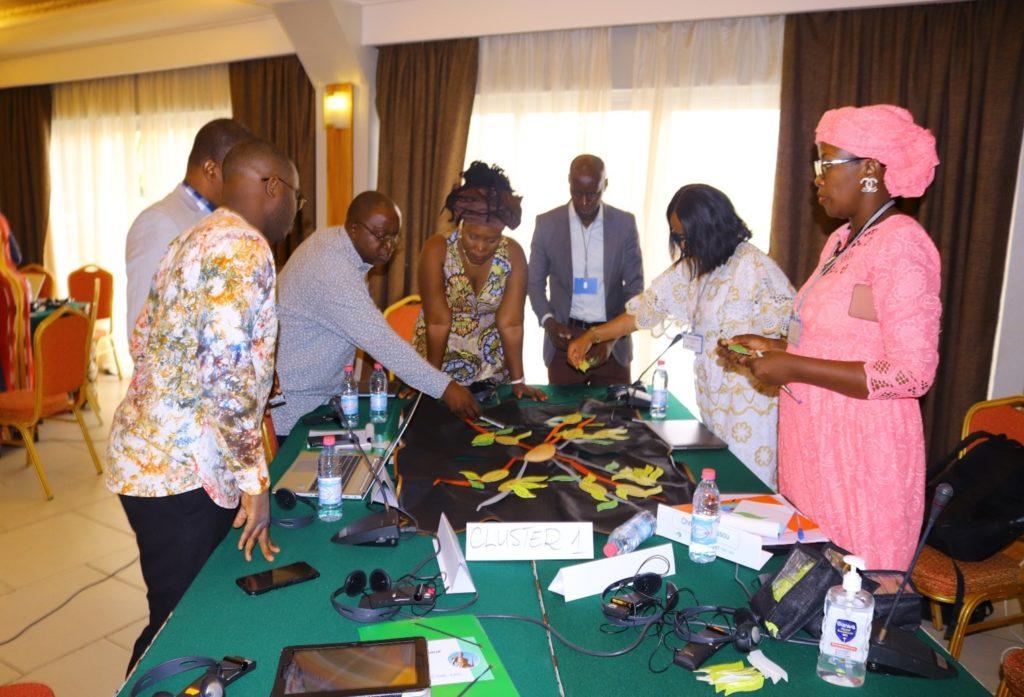
As most of you will know, West Africa is no stranger to epidemics. In recent history, the subregion has seen several infectious disease outbreaks of epidemic proportions, with cholera, measles, and yellow fever among the most prevalent outbreaks. And in 2014, of course, there was the Ebola Virus Disease (EVD) outbreak in Guinea, Liberia, Sierra Leone (and to a lesser extent Nigeria, Mali, and Senegal), which got global attention. With a total of 28,616 confirmed cases and a total of 11,310 recorded deaths, Guinea, Liberia and Sierra Leone were the worst affected countries. Systems for emergency response which were implemented as part of the preparedness programme for Ebola Virus Disease remained in place and were expected to be used as the foundation for preparedness for possible future epidemics.
Then the Covid pandemic hit the world, including West Africa. The pandemic pushed the global public health systems and the global economy over the edge of a precipice, and led to a rethinking of many existing policies and systems, and the formulation of many novel and ambitious ones. That process is still ongoing, globally, regionally and nationally.
RECOVER
It was at the peak of this epic global crisis that the West African Network of Emerging Leaders in Health Policy and Systems (WANEL-HPS) drew up a proposal entitled Rectifying the Effects of COVID-19 on Vulnerable Populations in West Africa: Research-Action (RECOVER). The proposal received funding from the International Development Research Centre (IDRC). The three-year project aims at reducing the knowledge gap about collateral effects of COVID-19 on vulnerable populations in West Africa and developing strategies to deal with similar future outbreaks. “Collateral effect” refers here to the unintentional or incidental effects of an action or an intervention. In the context of outbreaks, collateral effects are changes of health system components and the broader social health determinants, that can be attributed to the outbreaks themselves (first level collateral effects) or the interventions or policies to respond to them (second level collateral effects), and further, the effects of interventions and policies that seek to mitigate the second level collateral effects (third level collateral effects).
The implementation of RECOVER is undergirded by several approaches, key among them being Systems thinking, Multisectoral approaches, and Gender transformative approaches.
A quick word on each of these, perhaps:
Systems thinking is an approach to problem solving that considers “problems” as part of a wider dynamic system. This involves moving from silos and single programmes thinking to system thinking in the design and evaluation of an intervention. Thus, RECOVER is being implemented with key components recommended by the Alliance for Health Policy and Systems Research such as the convening and mobilization of ideas from stakeholders to understand the problem, conceptualize its effects, and adapt or redesign the intervention to address the problem. A Multisectoral approach (MSA) involves deliberate collaboration among various stakeholder groups such as government, civil society, private actors and sectors like health, environment, and the economy to jointly achieve a policy outcome. Finally, Gender transformative approaches (GTA) are programmes and interventions that create opportunities for individuals to actively challenge gender norms, promote positions of social and political influence for women in communities, and address power inequities between persons of different genders.
The adoption of the above-mentioned approaches in the implementation of the project helps ensure that results from RECOVER speak to a plethora of issues in a connected, meaningful and productive way, thereby guaranteeing a deeper and a more comprehensive response to the scourge of epidemics in the region.
Diving Deep at a sense making workshop in Benin
A key milestone of the RECOVER project was realized a couple of weeks ago at a sensemaking workshop in Benin which brought together experts from government, academia, health policy and systems research, communications et cetera, and representatives of the Consortium of five implementing partners namely Centre de Recherche en Reproduction Humaine et en Démographie (CERRHUD) in Benin; the Centre for Health Systems and Policy Research (CHESPOR) in Ghana; the African Institute of Health Policy and Health Systems in Nigeria; the Africa Center of Excellence for the Prevention and Control of Transmissible Diseases(CEA-PCMT) in Guinea, and Institut de Recherche en Sciences de la Santé (IRSS) in Burkina Faso. The aim was to extract insights and meaning from the findings from the “Deep dive” component of RECOVER which has a focus on identifying collateral effects on vulnerable populations and assessing country-specific strategies in addressing them. The deep dive focused on detailed case studies to expose specific COVID-19 impacts on vulnerable populations with a view on developing a responsive multisectoral policy framework and approach to address the impacts. Although a rapid assessment took place in the entire subregion in a previous step, the deep-dive case studies focused on five topics centered respectively on Benin, Burkina Faso, Ghana, Guinea, and Nigeria, the host countries of the five implementing partners of RECOVER.
After presentations and discussions on preliminary results from the countries’ case studies, Dr Jean-Paul Dossou, the Executive Director of Centre de Recherche en Reproduction Humaine et en Démographie, Cotonou (CERRHUD) and Principal Investigator of the project, and John de Maesschalck, a researcher with the Health Policy Unit of the Institute of Tropical Medicine, Antwerp, collected insights and synthesized findings in a collaborative and practical way, with the help of Ketso. Ketso is a tactile, colourful, participatory action research tool used for gathering insights and ensuring that everyone gets the opportunity to develop and share ideas.

Participants using Ketso to extract insights
The deep dive case studies revealed some important results with a view on a comprehensive response to future epidemics (and pandemics). Vulnerable populations affected included here those with conditions that require frequent use of health services such as women, mothers, newborns, and elderly people. Below we provide some of these early findings, to give you a flavour of the findings, without aiming to be comprehensive.
Among others, the studies revealed that although outbreaks such as COVID-19 affect everyone, women are much more adversely affected due to their caring roles – a point that further emphasizes the need for gender transformative approaches in the management of epidemics and pandemics. Furthermore, the case studies revealed the need for institutions to put in place robust surveillance mechanisms, not only of the direct effects of pandemics but also of the collateral effects; establish disease surveillance facilities; and improve public sensitization and intersectoral collaboration.
The deep dive cases also pointed to some plausible mechanisms (often mutually dependent) that fuel the collateral effects on various vulnerable groups. These were fear, the quest for gaining profits from the pandemic, mistrust (including a scientific “trust” crisis), larger opportunities for locally owned initiatives, reallocation of health care resources, and mental distress operating through multiple pathways and at micro, meso and macro levels.
For instance, fear of contracting COVID-19 or of being vaccinated against one’s will has reduced demand and supply of health services in many places. People literally shunned much needed health services due to fear. There was also economic fear such as fear of losing human capital and revenue, fear of being stigmatized and losing clients etc. Governments clearly also feared economic losses and a collapse of their economies. At the community level, there was fear of contracting the disease and transmitting it to families, fear of being stigmatized and forcibly detained in hospitals, and even fear of dying from the disease. Fear then, in turn, heightened anxiety and further increased depression among (already) vulnerable populations.
Meanwhile, the strategies adopted to manage the above mechanisms were mostly gender neutral and led to social inequities. A few examples: women were more likely to get COVID-19 infections in the first place due to their roles as caregivers; and ‘single parent’ women faced far bigger worries when their source of income got affected by COVID-19.
In all, RECOVER promises to add to the corpus of knowledge needed to understand and respond effectively to future epidemics with insights that are sensitive to the local contexts of West Africa. Stay tuned for more!